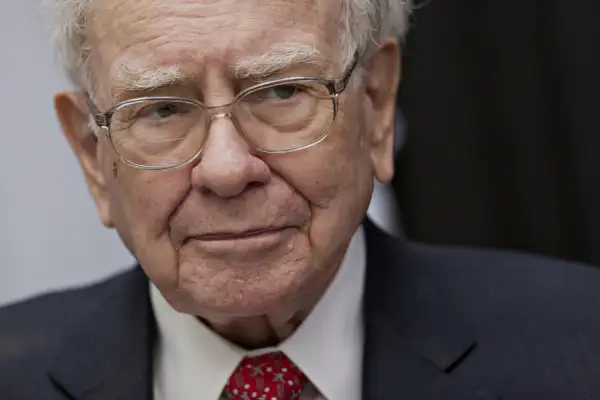Wells Fargo Is Hardly the Only Scandal-Plagued Stock Owned by Warren Buffett
Money is not a client of any investment adviser featured on this page. The information provided on this page is for educational purposes only and is not intended as investment advice. Money does not offer advisory services.

When it comes to the private companies he owns and manages through his holding company Berkshire Hathaway, Warren Buffett has made it painstakingly clear that he wants his employees to do the right thing — even at the expense of profits.
In a memo to Berkshire executives in 2010, he proclaimed: "We can afford to lose money — even a lot of money. But we can’t afford to lose reputation — even a shred of reputation." He added: "We must continue to measure every act against not only what is legal but also what we would be happy to have written about on the front page of a national newspaper in an article written by an unfriendly but intelligent reporter."
Alas, this same attitude doesn't seem to extend to the publicly owned stocks that Berkshire invests in.
Last week, Wells Fargo was fined $185 million for illegal banking practices. Employees were found to have opened hundreds of thousands of new credit cards and more than a million bank accounts in customers' names without their knowledge, allegedly motivated by compensation policies that rewarded them for getting existing clients to establish more ties with the bank.
Wells has been one of Buffett's favorite holdings, which he has proudly referred to as one of Berkshire's "Big Four" investments, along with American Express , Coca-Cola , and IBM . But shares of the giant bank—which Berkshire owns nearly 10% of—have fallen nearly 7% since the scandal broke. That dropped Buffett from his perch as the third-richest person on the planet to fourth place.
Yet Wells is certainly not the first company Berkshire invests in that has run into trouble because of ethical problems.
* Salomon Brothers
Buffett began buying shares of Salomon Brothers in 1987, just before the Wall Street brokerage made some bad junk bond bets heading into the 1987 market crash. In 1991, Salomon Brothers found itself in even worse straits, when it was caught rigging bids for U.S. Treasury bonds.
The government subsequently moved to ban Salomon from bidding in future government auctions, which threatened a core part of the company's bond-trading business. But Buffett stepped in during the crisis — he was temporarily named chairman and CEO — and convinced the Treasury Department to lift the trading ban.
After Buffett steered the firm to calmer waters, the company was eventually sold to Travelers in 1997 in a deal that more than doubled Buffett's original $700 million investment in the firm.
* Goldman Sachs
Buffett famously bailed out this investment bank in 2008, in the depths of the global financial crisis. In announcing the move, he said that "Goldman Sachs is an exceptional institution. It has an unrivaled global franchise, a proven and deep management team and the intellectual and financial capital to continue its track record of outperformance."
But Goldman has also come with its share of controversy.
This year, for example, the firm agreed to pay the government more than $5 billion for misconduct in packaging, marketing, and selling mortgage-backed securities in the lead-up to the mortgage crisis. The government held Goldman accountable for "misconduct in falsely assuring investors that securities it sold were backed by sound mortgages, when it knew that they were full of mortgages that were likely to fail," said acting Associate Attorney General Stuart Delery.
In 2013, Goldman was also accused of trying to drive up aluminum prices by tying up the metal stored in its warehouses.
That same year, Berkshire Hathaway was granted more than $2 billion in Goldman stock as part of its 2008 bailout agreement with Goldman.
* General Re
At its core, Berkshire Hathaway is an insurance giant, owning and managing companies ranging from GEICO to National Indemnity to Berkshire Hathaway Specialty Insurance to General Re, a reinsurer that offers coverage to other insurers so they can better manage their risk.
During the accounting scandals in the early 2000s, Gen Re was accused of engineering a deal that helped AIG boost its reserves improperly. Several key Gen Re execs—including its then chief executive—eventually settled with prosecutors and admitted that certain "aspects of the transaction were fraudulent."
* Berkshire Hathaway
In 2011, Buffett's own company was rocked by accusations of insider trading.
David Sokol, a Buffett lieutenant who was rumored to be a leading candidate to succeed Buffett upon his retirement, had reportedly purchased thousands of shares of Lubrizol, a specialty chemical firm, months before Berkshire acquired the company for $9 billion—on Sokol's recommendation.
Sokol later resigned, and Buffett admitted that he made a "big mistake" by not questioning Sokol more vigorously about the timing of his personal investment in Lubrizol.
